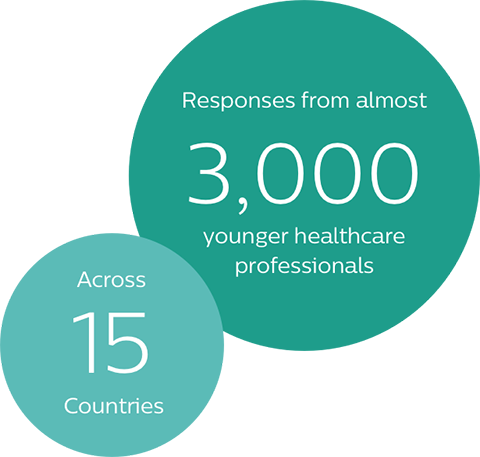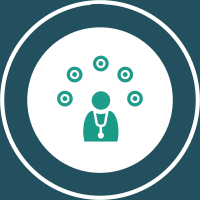
The current generation of younger professionals will soon make up the majority of our local healthcare workforce in South Africa. They have the responsibility – and the privilege – of delivering the changes that are needed to ensure healthcare systems are fit for purpose. Value-based care is the ultimate aspiration of this, delivered through the Quadruple Aim of better health outcomes, improved patient and staff experience, and lower cost of care. The challenge to transform healthcare lies on this group’s shoulders, but too often their views are not widely understood. The Future Health Index 2020 for South Africa explores this generation's expectations around technology, training and job satisfaction, and the reality of their experience as healthcare professionals.
The current generation of younger professionals will soon make up the majority of our local healthcare workforce in South Africa. They have the responsibility – and the privilege – of delivering the changes that are needed to ensure healthcare systems are fit for purpose. Value-based care is the ultimate aspiration of this, delivered through the Quadruple Aim of better health outcomes, improved patient and staff experience, and lower cost of care.
The challenge to transform healthcare lies on this group’s shoulders, but too often their views are not widely understood. The Future Health Index 2020 for South Africa explores this generation's expectations around technology, training and job satisfaction, and the reality of their experience as healthcare professionals.

Exploring the gaps in healthcare education and training
Younger healthcare professionals see four key gaps in their career relating to: skills, knowledge, data and expectations.
Skills
Many feel their medical education did not prepare them for certain aspects of their career

44%
Say their medical education has not prepared them at all for business administration tasks
Knowledge
How much younger healthcare professionals knew about value-based care

78%
Only knew it by name/a little/nothing at all
Some younger healthcare professionals say they are overwhelmed by digital patient data. Many say the reality of their career does not live up to their hopes and expectations.
Data

35%
Don’t know how to use digital patient data to inform patient care

35%
Are overwhelmed by the amount of digital patient data
Expectations

41%
Disagree or neither agree nor disagree that the reality of their career lives up to their hopes and expectations
This generation says the biggest change needed to leverage healthcare data is fixing problems that impair the smooth running of digital health technologies such as interoperability, data accuracy and security.

58%
Improved interoperability between platforms

57%
Improved accuracy of data

54%
Improved data security

Creating the ideal healthcare working environment
Smarter and more flexible working environments are key to attracting talent.
Other than salary, factors around collaboration, autonomy and technology are important when choosing a hospital or practice in which to work.

89%
Workplace culture

88%
Latest equipment / technologies

79%
Reputation

75%
Work/life balance
Percentages are NETS.
Base (unweighted): Total younger healthcare professionals excluding those who selected 'salary - important to you' (n=663)
Addressing the gap
This data gives a clear mandate to healthcare leaders to respond to the concerns of this younger generation of healthcare professionals. It highlights three core areas to address urgently:

Education and training

Technology

Culture
The Future Health Index is commissioned by Philips.
The 2020 study comprises original research via a survey of 2,867 healthcare professionals under the age of 40 years old across 15 countries: Australia, Brazil, China, France, Germany, India, Japan, the Netherlands, Poland, Romania, Russia, Saudi Arabia, Singapore, South Africa and the United States of America.




